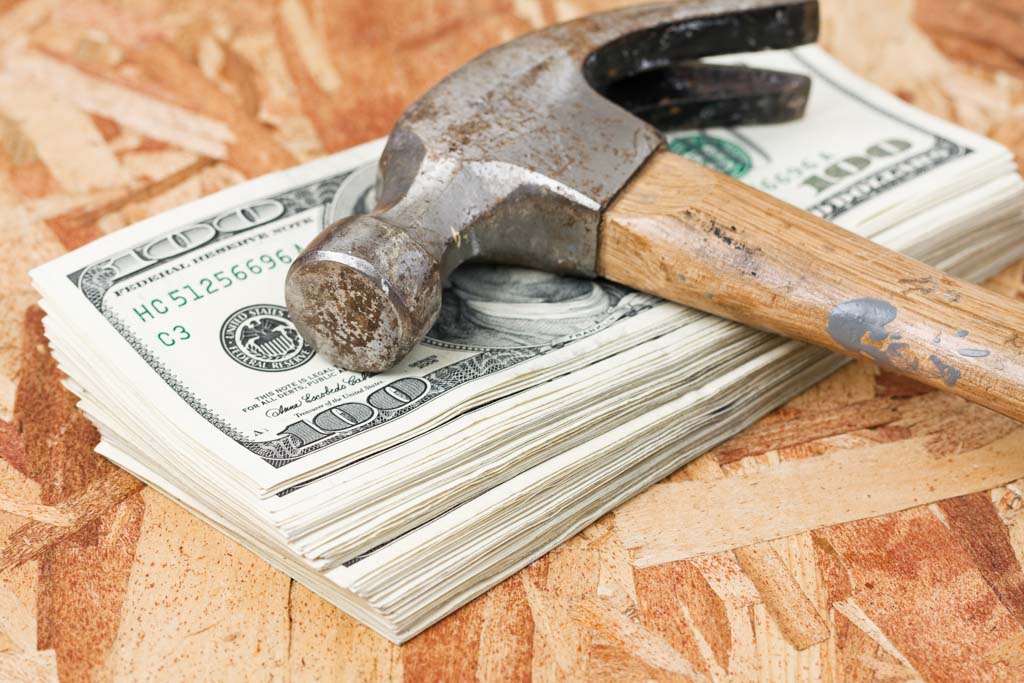As Two-Brain gyms become more successful, they’re often approached to “buy out” other local gym owners. Or, after building replicable processes, they see the opportunity to expand and add a second location.
As the gap between profitable gyms and unprofitable gyms widens, these opportunities will become more common.
So which option is better: starting a new gym from scratch under your profitable brand or buying an existing gym—and its clients, revenue and problems?
Setting the Baseline
Let’s start with the cost to start a gym and compare the benefits and challenges of buying an existing gym against that anchor point.
You can start a new gym for under $35,000, including $7,000 for mentorship (to open successfully), $20,000 for equipment (that’s more than enough) and $5,000 for space upgrades.
(You can get our free Ultimate Business Plan template here.)
But there are some cases where it makes sense to buy an established gym. Just make sure you answer the questions below first.
Questions to Answer Before Buying
Why do you want to own a second gym?
If I hear: “I just want to help more people. My first gym doesn’t take any of my time,” then we proceed with the purchase.
But usually, I hear this: “It’s a great opportunity. There are no other gyms in the area. My members could choose where to visit. It’s almost profitable. I know I could fix it.”
That last part is in bold because I hear it a lot.
The problem is that it takes three times the effort and three times the time to fix a problem than to avoid the problem. In many cases, it takes more work to undo problems than to just start from a blank canvas.
And if you’re opening a second location to make more money, you should be sure you’re maximizing revenue at your first location. Because a second location doesn’t double your workload; it quadruples it.
Is There a Third Option?
Here are the questions I ask next:
- Is there a chance you could get the gym’s members even if you didn’t buy the gym?
- Is there an easier way to increase your income in your current gym in less time than you’d require to fix the other gym?
- Are clients in the other gym accustomed to lower rates? Do they match your target demographic?
- Why is the other gym failing? Are you buying the problems that are killing it?
- Does a higher membership count move you closer to your “perfect day”?
- What liabilities are you also buying? (For example, a lease.)
After thinking it through, many owners decide not to buy out another owner. Here are some reasons I’ve heard recently:
“It would take me months to fix that gym. If I calculate the value of my time, it would be a lot easier to just increase my sales by $2,000 per month at my current location.”
“I’m pretty close to my perfect day already. I can’t imagine dealing with all the discounts and student memberships that killed the other gym.”
“I know I could fix the culture over there, but it would cause me a lot of stress in the meantime.”
“They want a lot more than their valuation. No thanks.”
“I realized it was just my ego saying, ‘I want to be the guy who owns two gyms.’”
Many decide they don’t want to buy the other person’s problems. But they do want to help. So sometimes they offer the other owner a job or pay for the client list or even buy the equipment.
There are ways to help that don’t involve sacrificing your perfect day (or your income!) to save someone else. But kudos for wanting to!
What’s the Other Gym Actually Worth?
If you’re sure you want to own two gyms and you’ve examined the less-expensive, easier options, the next step is to anchor the conversation with numbers. You can use our valuation tool:
Rigquipment Finance DCF Worksheet for TwoBrainBusiness.com
Forget intangibles like “community” or location. How profitable is the gym? How long has it been open? How much of your time will this second location require?
If the gym has been open for 10 years and the owner earns $30,000 per year, take a hard pass—you can make more than that in your first year if you start from scratch with a mentor. And you won’t have to go through the work and pain of trying to change the gym.
After all, there’s a reason the owner is selling—and it’s not because he or she wants to “pursue other opportunities.” No one sells a profitable gym that runs itself.
Do I Have to Buy It Now?
If you do want to buy out another gym, we’ve been through it many times. The path is clear. Just make sure your own house is in tip-top shape because you’ll have to focus your full attention on the second gym for a few months.
Clients who have been through our RampUp Program are generally successful when they buy out another gym—unless they decide they’re doing just fine with one.
After all, no one needs a second gym when the first one pays well.
You can download the two free guides “How to Buy a Gym” and “How to Sell a Gym” here.
In the next post in this series, I’ll tell you how to get economies of scale by duplicating your original gym. Like buying out another gym owner, there are pros and cons to starting from scratch.
And on the July 6 edition of the “Run a Profitable Gym” podcast, three owners will share their experiences with both buying and building.
If you’d like to find out more about mentorship for gym owners, click here to do so.

